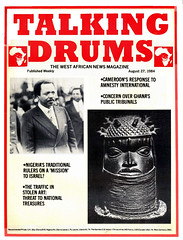A Stranger's London
Bandleader's secret
Peter Tory's Diary in the Mirror: Society bandleader, Tommy Kinsman, who died the other day entrusted a splendid secret to a small number of his friends and insisted that the story should be published only after his death. The story is that Mr Kinsman was a great favourite with the Royal Family and played regularly at parties which they attended.At one such event for the Prince of Wales (later briefly Edward VIII) during a band break Kinsman slipped into a side room for a discreet cigarette.
After a moment or two the door opened and His Royal Highness slipped in tugging a giggling young lady into the semi-darkness. The Prince deftly turned the key in the lock. And the pair sank into a chaise lounge where they began to engage in foreplay.
Kinsman had to make a decision - should he cough politely, look at his watch and bustle from the room - or should stay put?
He stayed put and frozen to stone watched in fascinated horror as the future King made full glorious love to the gasping object of his passion.
The last word on the games
I expect there will be many viewers who feel there is a gap in their lives now that the Olympic Games are over, wrote Mary Kenny in her weekly T.V. review in the Daily Mail. "I heard someone remark quite proudly that much of the athletics seemed to be a matter of OUR black champion against THEIR black champions and how good it was for race relations that black Britons and Black Americans. were now seen as successful representatives of their respective countries.Black American athletes raised a clenched fist against the American flag bullets, at an Olympiad. The 1984 Olympics showed a much more serene picture of race relations - even if we cannot say the same about East-West tensions. . .
Body language
And talking about race relations, I think one young white Briton's effort must be commended and maybe sup- ported with a Greater London Council's funding.With the sunshine of the last week- end raising the temperature to higher levels one young man shed his shirt and tattooed in bright colours on his bare back and arms were an astounding looking black rastafarian sporting dreadlocks and holding a huge radio- cassette player. Beside him was another tattoo of a white boy and an inscription boldly written over their heads: "why can't blacks and whites live together in peace?"
Campaign against plastic bullets
The campaign against plastic bullets, to which Lambeth Council's Labour Group is now affiliated, demands that plastic bullets be withdrawn from both 1981. Great Britain and Northern Ireland and that their manufacture, stockpiling, and export, should be terminated.By the end of 1983 44,000 plastic bullets had been used against the population of Northern Ireland. Sean Downes, killed on 13 August, was the weapons twelfth fatal victim since 1973, six of those killed were 15 or under. Since the disturbances of the summer There was a time, remember, when of 1981, 23 Police Forces in England and Wales have stockpiled plastic or are trained in their use.
According to the Campaign Against Plastic Bullets London's Police are in possession of at least 20,000 rounds. The bullets are solid PVC cylinders, 4 inches long and 1½ inches in diameter. They weigh nearly 5 ounces and are fired at up to 170 miles an hour. The deaths and injuries caused by plastic bullets demonstrate that the Army and the RUC have a complete disregard for the rules governing use.
They should be fired only after a warning and from no closer than 20 metres at a chosen target with the intention of hitting below the waist. In Britain the bullets can only be used with the authority of Chief Constable or Deputy Chief Constable. In May 1982 the European Parliament called for an end to the use of plastic bullets.
In supporting the Labour Group's decision to affiliate Councillor Marcel Bhugon, Chairman of the Police Committee, stated 'Whilst I am relieved that Commander Marnoch has informed the Council that there are no stocks of plastic bullets in Lambeth, we are already concerned at the level of violence demonstrated by London's Police during the miners' strike and on the streets of Brixton in the summer of 1981
Unless we campaign now for a total ban on the use and manufacture of these weapons, it is only a matter of time before we see their use on the streets of London.
